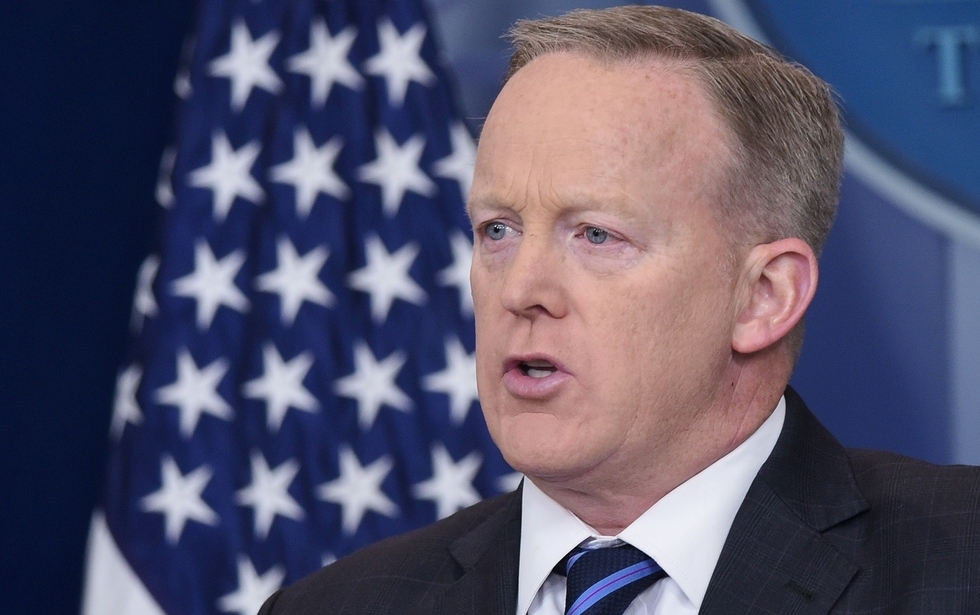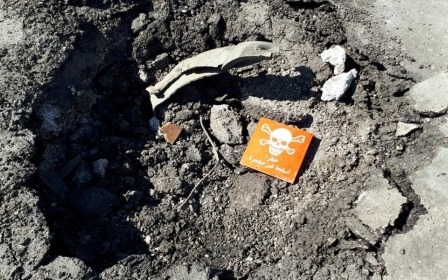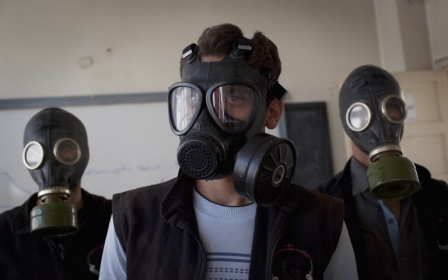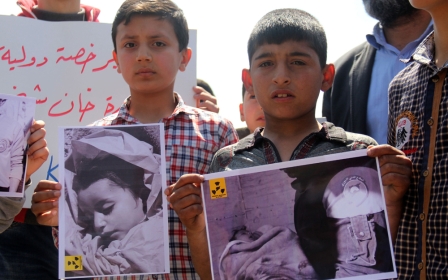Syria preparing another chemical weapons attack: White House

The White House said on Monday it appears the Syrian government is preparing another chemical weapons attack and warned that Bashar al-Assad and his military would "pay a heavy price" if it conducts such an attack.
The White House statement said preparations by Syria were similar to those undertaken before a 4 April chemical attack in Khan Sheikhun that killed dozens of civilians and prompted US President Donald Trump to order a cruise missile attack on a Syrian airbase.
"The United States has identified potential preparations for another chemical weapons attack by the Assad regime that would likely result in the mass murder of civilians, including innocent children," spokesman Sean Spicer said in a statement.
"The activities are similar to preparations the regime made before its 4 April, 2017 chemical weapons attack.
"As we have previously stated, the United States is in Syria to eliminate the Islamic State of Iraq and Syria."
"If, however, Mr Assad conducts another mass murder attack using chemical weapons, he and his military will pay a heavy price."
In response to the White House statement Russia on Tuesday denounced US "threats" against the Syrian government.
Moscow, which backs Assad militarily, has consistently rejected accusations that Damascus was behind a deadly chemical weapons attack in Syria in April.
Trump ordered the strike on the Shayrat airfield in Syria after that attack in reaction to what Washington said was a poison gas attack by Assad's government that killed at least 70 people in rebel-held territory. Syria denied it carried out the attack.
The strike was the toughest direct US action yet in Syria's six-year-old civil war, raising the risk of confrontation with Russia and Iran, Assad's two main military backers.
US officials at the time called the intervention a "one-off" intended to deter future chemical weapons attacks and not an expansion of the US role in the Syrian war.
However, the United States has taken a series of actions over the past three months against Syrian government forces, demonstrating its willingness to carry out strikes against Damascus and its backers, including Iran.
US ambassador to the United Nations Nikki Haley said on Twitter: "Any further attacks done to the people of Syria will be blamed on Assad, but also on Russia and Iran who support him killing his own people."
Britain's defence secretary, Michael Fallon, said his country would support any fresh retaliation by the US for the use of chemical weapons.
"As always in war, the military action you use must be justified, it must be legal, it must proportionate, it must be necessary. In the last case it was," he told BBC Radio 4's Today programme.
"If the Americans take similar action again, I want to be very clear - we will support it."
In the wake of the White House intervention and support from US allies, Kremlin spokesman Dmitry Peskov told journalists: "We consider such threats against the Syrian leadership to be unacceptable."
Since the April military strike, Washington has repeatedly struck Iranian-backed militia and even shot down a drone threatening US-led coalition forces on 20 June.
The US military also shot down a Syrian jet earlier this month.
Trump has also ordered stepped-up military operations against the Islamic State militant group and delegated more authority to his generals.
In Raqqa, where US-backed SDF forces are closing in on the militants, more than 400 civilians have been killed in US air strikes over the last month, according to reports.
New MEE newsletter: Jerusalem Dispatch
Sign up to get the latest insights and analysis on Israel-Palestine, alongside Turkey Unpacked and other MEE newsletters
Middle East Eye delivers independent and unrivalled coverage and analysis of the Middle East, North Africa and beyond. To learn more about republishing this content and the associated fees, please fill out this form. More about MEE can be found here.




